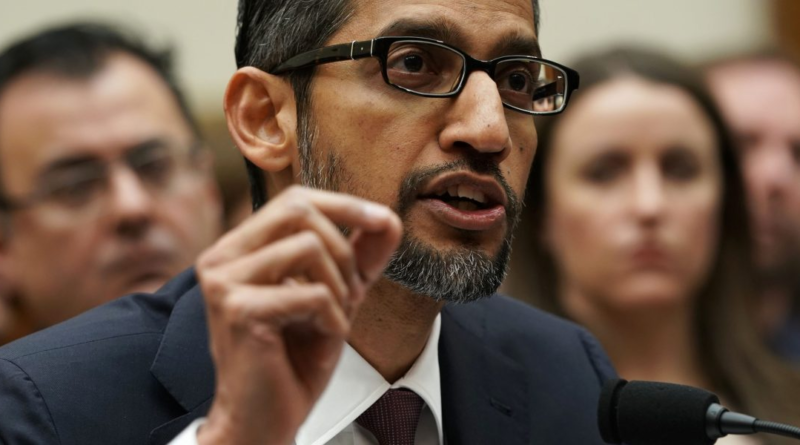Sundar Pichai tells Google staff he doesn’t want any more political debates in the office
In a world where sociopolitical issues are increasingly divisive, saying the perceived wrong thing on gender identity or the Israel-Palestine conflict could make you a victim of cancel culture—or, fired from your job.
Now, Google CEO Sundar Pichai has weighed in on the debate over the relative values of political expression and workplace coexistence by ordering employees to leave their political opinions at home.
A day after firing 28 workers for participating in a sit-in protest of the tech giant’s cloud contract with Israel, Pichai warned staff that the office is not a place “to fight over disruptive issues or debate politics” in a company blog post.
Although Pichai didn’t specifically mention the protests or the Israel–Hamas war, he concluded that the $1.92 trillion company “is a business, and not a place to act in a way that disrupts coworkers or makes them feel unsafe, to attempt to use the company as a personal platform.”
“We have a duty to be an objective and trusted provider of information that serves all of our users globally,” Pichai continued.
“When we come to work, our goal is to organize the world’s information and make it universally accessible and useful. That supersedes everything else and I expect us to act with a focus that reflects that.”
Fortune has contacted Google for comment.
‘Googler against genocide’
Last week, employees across Google offices in New York City, Seattle, and Sunnyvale, California staged a nearly 10-hour sit in protest of the company’s involvement in Project Nimbus, a $1.2 billion Israeli government cloud contract.
Some staff were spotted wearing T-shirts bearing the slogan “Googler against genocide” and occupying the office of Thomas Kurian, Google Cloud’s chief exec.
In the aftermath, Google’s head of security Chris Rackow wrote in an internal memo that the protests “made co-workers feel threatened”, before warning those tempted to violate the company’s policies in the future to “think again”.
“We will continue to apply our longstanding policies to take action against disruptive behavior—up to and including termination,” Rackow warned.
The 28 “disruptive” employees who were fired by Google—including nine who were arrested after refusing to leave—are affiliated with No Tech For Apartheid, which has been critical of Google’s response to the Israel-Hamas war.
“Sundar Pichai and Thomas Kurian are genocide profiteers,” the group that led the protests wrote in a press release.
“We cannot comprehend how these men are able to sleep at night while their tech has enabled 100,000 Palestinians killed, reported missing, or wounded in the last six months of Israel’s genocide — and counting.”
Tech’s culture shift
Tech companies were previously famed for their progressive culture where nap pods and abortion benefits were welcome.
Even Pichai notes in his memo that Google has previously enjoyed “a culture of vibrant, open discussion that enables us to create amazing products and turn great ideas into action.”
But what used to be a driver of innovation is now a great source of tension across many businesses.
Thanks to social media, it’s no longer en vogue to agree to disagree—and it’s leaving workers across the board scared of being either canceled or labeled a snowflake.
It’s why bosses are increasingly opting to ban political talk in the office altogether.
In 2020, the Silicon Valley-based cryptocurrency company Coinbase said it would not allow discussions of politics and social issues at work anymore—and that staffers who don’t like that are free to leave.
Meanwhile, Meta took all controversial chat off the office table, including gun rights and vaccines, when it introduced its community engagement expectations (CEE) policy at the end of 2022.
“This comes with the trade-off that we’ll no longer allow for every type of expression at work, but we think this is the right thing to do for the long-term health of our internal community,” Lori Goler, the company’s head of people at the time wrote in an internal memo viewed by Fortune.




